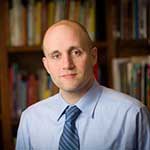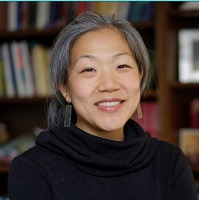Advisory Board
The Advisory Board supports the RAISE Center in fulfilling its mission to understand and enhance experiences, engagement, and development of abroad and international students by providing thought partnership and guidance to the RAISE Center Leadership Team. As the RAISE Center enters its second year in AY 2022, the Advisory Board will support the RAISE Center Leadership Team in expanding the recently developed strategic direction into a detailed strategic plan.
RAISE Center Advisory Board members provide a diverse range of expertise and experience centered on:
- Global student engagement
- Global Awareness
- Research center operations and project management
- Development of lines of inquiry
- Grant funding and management
- Partner collaborations
2020-2022 Advisory Board Members

Dr. Eylem Atakav is a Professor in the department of Art, Media, and American Studies at the University of East Anglia in Norwich, England, the United Kingdom of Great Britain and Northern Ireland.

Dr. Louis “Lou” Berends is the Associate Provost at CEA CAPA. He holds a Ph.D. from Loyola University Chicago in cultural and educational policy studies with a concentration in comparative and international education.

Dr. Alan Brown is Associate Professor of English Education, Bryant/Groves Faculty Fellow, and Chair of the Department of Education at Wake Forest University. His scholarly interests include working with secondary and college students as well as middle and high school teachers and athletic coaches to critically examine the culture of sports in schools and society while connecting contemporary literacies to students’ extra-curricular interests. He organizes the Skip Prosser Literacy Program, including the program’s READ Challenge, a collaboration between Wake Forest Athletics and the Department of Education. He also leads the Paisley IB Magnet School Sports Literacy Program, a weekly after-school program for eighth-grade boys that supports youth through academic, social, and community engagement.

Dr. Nelson Brunsting is an Assistant Professor in the School of Special Education, School Psychology, and Early Childhood Studies at the University of Florida. Nelson’s research focuses on special education teachers’ working conditions and burnout. He previously served as the Executive Director of the RAISE Center, where he led lines of inquiry on international student engagement and mapping the knowledge base in study abroad.

Dr. Amelia Dietrich is the Senior Director for Research and Publications at The Forum on Education Abroad and Managing Editor of Frontiers: The Interdisciplinary Journal of Study Abroad. She joined The Forum in 2015 as a Mellon/ACLS Public Fellow. Amelia’s work focuses on leading original research initiatives and supporting the publication of others’ scholarship on best practices in education abroad, maximizing the impact of education abroad for students, institutions and communities, and identifying promising practices on the leading edge. Amelia also facilitates professional development workshops on the Standards of Good Practice for Education Abroad in a variety of venues and lends her expertise to project-based consultancies and comprehensive reviews. She serves on the IIE Open Doors Study Abroad Working Group and is a Certified Professional in Education Abroad.

Dr. Chris Glass is a Professor in the Department of Educational Leadership and Higher Education at Boston College. His research and writing focus on global student mobility, virtual mobility and exchange.

Dr. Terrence Harewood is an Associate Professor of Education at the University of Indianapolis.

Dr. Lisa Kiang is a Professor of Psychology and MacDonough Faculty Fellow (2019-2022) at Wake Forest University.

Dr. Ann Nielsen is the Associate Director of the Center for Advanced Studies in Global Education in the Mary Lou Fulton Teacher’s College at Arizona State University. Her interests in education and research have focused upon teacher professional subjectivities, teacher leadership, and school leadership using visual and qualitative methodologies. Ann has served as the principal investigator for multiple international initiatives such as the International Leaders in Education Program, the Argentina Teacher Exchange Program, the Exchange Program for Brazilian Awarded Public School Principals, the Fulbright Distinguished Awards in Teaching Program, Building Leadership for Change Through School Immersion -Saudi Arabia and YouLead Youth and Business Start Up Program–Sri Lanka. In addition to leading the implementation of multiple international initiatives, Ann has provided technical expertise and assistance in the West Bank Pre-Service Teacher Activity and the Strengthening Higher Education Access in Malawi Activity.

Ann Skinner is the Research Project Manager for Parenting Across Cultures (PAC) housed at the Center for Child and Family Policy at Duke University. The PAC study includes collaboration and data collection across 9 countries. Ann also works as the liaison between researchers and the N.C. Department of Public Instruction on the Center for the Study of Adolescent Risk and Resilience (C-StARR). Ann serves as a supervising researcher in the Junior Researcher Programme, an international initiative to foster research experiences for early-career psychologists and behavioral scientists. Ann’s specific research focuses on family systems in times of stress, with a particular interest in examining youth externalizing behavior in cultural context.
